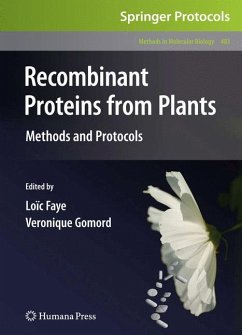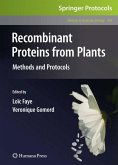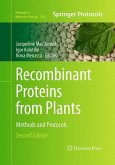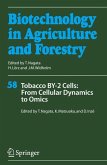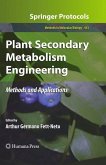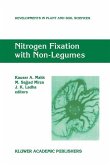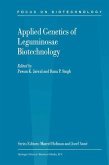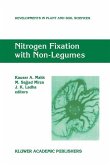The past decade has seen the emergence of plants as a viable alternative to the current production systems for therapeutic proteins. In Recombinant Proteins from Plants, expert researchers explore plants and their potential for the production of increasingly safe, high quality and biologically active complex recombinant pharmaceutical proteins. Chapters present several production platforms, focusing on the largest and most important group of biotechnological products in clinical trials: antibodies and their derived fragments with acknowledged potential for immunotherapy in humans. Due to the shortage of step by step protocols that can be used easily by beginners, this volume aims to fill the void with several chapters of detailed instructions for using the main plant expression systems. Composed in the highly successful Methods in Molecular Biology(TM) series format, each chapter contains a brief introduction, step-by-step methods, a list of necessary materials, and a Notes section which shares tips on troubleshooting and avoiding known pitfalls.
Comprehensive and cutting-edge, Recombinant Proteins from Plants serves as an ideal guide for those new and seasoned plant scientists, pharmaceutical scientists, and molecular and cellular biologists interested in molecular pharming.
Altogether, the biochemical, technical and economic limitations on existing proka- otic and eukaryotic expression systems and the growing clinical demand for complex therapeutic proteins have created substantial interest in developing new expression systems for the production of therapeutic proteins. To that end, plants have emerged in the past decade as a suitable alternative to the current production systems, and today their potential for production of high quality, much safer and biologically active complex recombinant pharmaceutical proteins is largely documented. The chapters in this volume, contributed by leaders in the field, sum up the state-- the-art methods for using a variety of different plants as expression hosts for phar- ceutical proteins. Several production platforms are presented, ranging from seed- and leaf-based production in stable transgenic plant lines, to plant cell bioreactors, to viral or Agrobacterium-mediated transient expr ession systems. Currently, antibodies and their derived fragments represent the largest and most important group of biote- nological products in clinical trials. This explains why the potential of most prod- tion platforms is illustrated here principally for antibodies or antibody fragments with acknowledged potential for immunotherapy in humans. In addition, a comparison of different plant expression systems is presented using aprotinin, a commercial phar- ceutical protein, as a test system. Although multiple books and monographs have been recently published on mol- ular pharming, there is a noticeable dearth of bench step-by-step protocols that can be used quickly and easily by beginners entering this new field.
Comprehensive and cutting-edge, Recombinant Proteins from Plants serves as an ideal guide for those new and seasoned plant scientists, pharmaceutical scientists, and molecular and cellular biologists interested in molecular pharming.
Altogether, the biochemical, technical and economic limitations on existing proka- otic and eukaryotic expression systems and the growing clinical demand for complex therapeutic proteins have created substantial interest in developing new expression systems for the production of therapeutic proteins. To that end, plants have emerged in the past decade as a suitable alternative to the current production systems, and today their potential for production of high quality, much safer and biologically active complex recombinant pharmaceutical proteins is largely documented. The chapters in this volume, contributed by leaders in the field, sum up the state-- the-art methods for using a variety of different plants as expression hosts for phar- ceutical proteins. Several production platforms are presented, ranging from seed- and leaf-based production in stable transgenic plant lines, to plant cell bioreactors, to viral or Agrobacterium-mediated transient expr ession systems. Currently, antibodies and their derived fragments represent the largest and most important group of biote- nological products in clinical trials. This explains why the potential of most prod- tion platforms is illustrated here principally for antibodies or antibody fragments with acknowledged potential for immunotherapy in humans. In addition, a comparison of different plant expression systems is presented using aprotinin, a commercial phar- ceutical protein, as a test system. Although multiple books and monographs have been recently published on mol- ular pharming, there is a noticeable dearth of bench step-by-step protocols that can be used quickly and easily by beginners entering this new field.
From the reviews: "This book presents current methods for the expression of those pharmaceutical proteins in a variety of plant systems. ... Each one of its twenty chapters offers objective, clearly written texts including a summary ... and some important notes followed by the references. ... 'Recombinant proteins from plants' is surely a useful tool and a practical and rapid summarized data source with easy procedures on plant molecular pharming for all scientists and related professionals working in this growing field." (Dominique C. H. Fischer, Brazilian Journal of Pharmaceutical Sciences, 2009)

